(Above: Thomas Reese and Thomas Rosica, the English language media attaché of the Holy See Press Office.)
On March 22, 2019, Jesuit priest Thomas Reese will speak at the Los Angeles Religious Education Congress (LA REC) on the issue of the clergy sexual abuse crises in the Catholic Church. The title of his address: “The Sex Abuse Crisis: A Church that Needs to Take Action.” According to the description of Reese’s address posted on the official website for the LA REC:
The clergy sex abuse crisis continues to rock the Catholic Church. In this session we will take a look at some possible actions the Church can take.
Reese has a long history of opposition to some of the fundamental teachings of the Church. Reese resigned after seven years as the editor of the Jesuit “Catholic” magazine America due to pressure from the Congregation for the Doctrine of the Faith then headed by Cardinal Ratzinger. During his tenure at America, Reese published controversial and unorthodox editorials on several crucial topics including priestly celibacy, homosexual priests, and the ordination of women. Because of his vocal support for the Affordable Care Act, in 2016 President Obama awarded Reese with an appointment to the U.S. Commission on International Religious Freedom. Now, he writes for the National Catholic Reporter.
On the subject of homosexuality and same-sex marriage, Reese has been the most outspoken.
In a 2005 “New York Times” article, Reese said: “with the shortage of priests, the church can hardly afford to dismiss gay seminarians.”
In 2009, Reese said: “I have never bought the argument that gay marriage is a threat to families. Legalizing gay marriage is not going to cause millions of people in heterosexual marriages to suddenly decide to leave their spouses for a same-sex partner. It could be argued that gay marriage might help heterosexual marriages. For example, in an apartment building filled with unmarried couples in New York City, the gays who get married may inspire the heterosexuals to do the same thing.”
In a 2010 interview, he said: “I personally think the Church’s battle against the legalization of gay marriage is misplaced. This idea that gay marriage is somehow a threat to family life or to heterosexual marriage doesn’t make sense.”
After the Obergefell v. Hodges (2015) decision, which legalized same-sex marriage in the United States, Reese wrote:
“With the U.S. Supreme Court decision legalizing gay marriage throughout the United States, the U.S. Catholic bishops need a new strategy going forward. The bishops’ fight against gay marriage has been a waste of time and money. The bishops should get a new set of priorities and a new set of lawyers.”
Reese continued:
“If bishops in the past could eventually accept civil divorce as the law of the land, why can’t the current flock of bishops do the same for gay marriage?”
Preceding the 2014 Synod on the Family, Reese wrote:
What we will see coming out of the synod is a desire to change the way the church speaks. Phrases like “living in sin,” “a contraceptive mentality,” and “intrinsically disordered” may be consigned to the historical dustbin. The bishops have come to understand that “to label people,” explained Father Rosica, “does not help in bringing people to Christ.”
In 2018, Reese wrote an article that was highly critical of “Humanae Vitae:”
Today, many in the hierarchy are claiming that “Humanae Vitae” was prophetic in its conviction that contraceptives led to the separation of sex from procreation and therefore to conjugal infidelity, disrespect for women, gender confusion, and gay marriage. But the controversy was never over the encyclical as a whole; rather, it was over its prohibition of every single use of artificial contraception. To say that contraception caused all of these other problems is absurd, an insult to all the good people who have used contraceptives at some point in their lives.
Also, in 2018, concerning so called “gay priests,” Reese wrote:
…the vast majority of gay priests, like heterosexual priests, try to live celibate lives and serve the people of God in parishes across the world. The church would be at a loss without them.
Fellow Jesuit James Martin will also speak at the 2019 LA REC; the topic of his address will be: “Showing Welcome and Respect to LGBTQ People in Our Parishes.” Martin spoke about the LGBT issue and the Catholic Church at the 2018 LA REC.
In a 2018 article for America, “The witch hunt for gay priests,” Martin wrote:
While the contempt directed at gay clergy is coming from just a handful of cardinals, bishops and priests, as well as a subset of Catholic commentators, it is as intense as it is dangerous.
He continued:
Where does this extreme hatred of gay priests come from? It comes from fear. Fear of the “other.” Fear of the person who is different. Sometimes fear of one’s own complicated sexuality.
The other speakers at the 2019 LA REC who will address the clergy sex abuse crisis, include: John Allen Jr., Dr. Greer Gordon, and Dr. Heather Banis and Suzanne Healy.
John Allen Jr. is a Catholic journalist, formerly a senior correspondent with the National Catholic Reporter, he is currently the editor of the Catholic news website Crux. In a 2016 article “Decoding what it means to say the Vatican has a ‘gay lobby’,” Allen wrote:
…The Vatican’s supposed “gay lobby” is not a lobby, and it’s not exclusively about being gay.
Concerning the August 25, 2018 “letter” from Archbishop Carlo Maria Viganò, Allen argued that the “letter” might have been “orchestrated with a political agenda in mind.” He continued:
In the statement on McCarrick, Viganò clearly betrays a generally conservative political bias, among other things in his frequently derisive commentary on prelates and clerics he finds to be excessively “pro-gay”…
At the 2005 LA REC, Catholic theologian, Dr. Greer Gordon, took part in the workshop – “Homosexuality, Celibacy and the Priesthood: Opening Up the Conversation;” James Martin was also a participant in that workshop. As reported in “The Tidings,” relaunched as Angelus in 2016 – the official newspaper of the Archdiocese of Los Angeles:
According to Gordon, catechists need to rise above fear to understand homosexuality. “We have to be willing to assist (some of) our clergy, who are themselves homosexual, in learning what it means to live a life that is free, a life that is open, but a life that is celibate,” she noted…
“The Tidings” continued:
Gordon urged catechists to use their instincts and be vigilant in protecting children from pedophiles, using as much resource information as possible. “We need to separate the issue (of pedophilia) from homosexuality,” she said.
“Generally speaking, as catechists (and) pastoral leaders, it’s important for us to try and deal with our own feelings of bigotry and bias around homosexuality…There are homosexual people in our midst and some of these homosexual people do now, and have in the past, served this God in this church,” said Gordon.
In 2016, Gordon was the Keynote Speaker at the National Conference for the pro-gay marriage advocacy group Call To Action. At the 2018 LA REC, another speaker associated with Call To Action, spoke about the LGBT issue.
Dr. Heather Banis is a clinical psychologist and serves as the victim assistance coordinator for the Archdiocese of Los Angeles; she was preceded in this position by Suzanne Healy.
No victims of priest sexual abuse will address the 2019 LA REC.
Archdiocese of Los Angeles
3424 Wilshire Blvd.
Los Angeles, CA 90010-2241
phone: (213) 637-7000
email: info@la-archdiocese.org
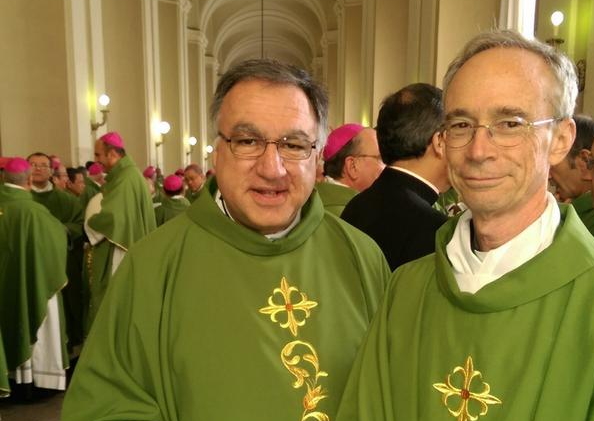

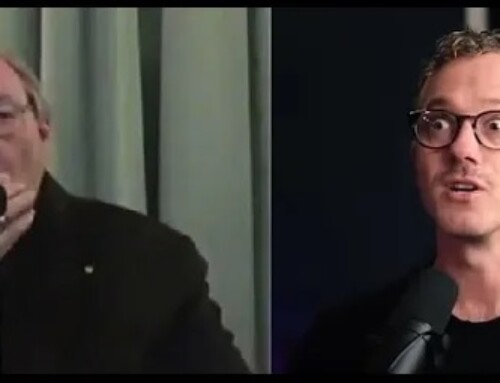
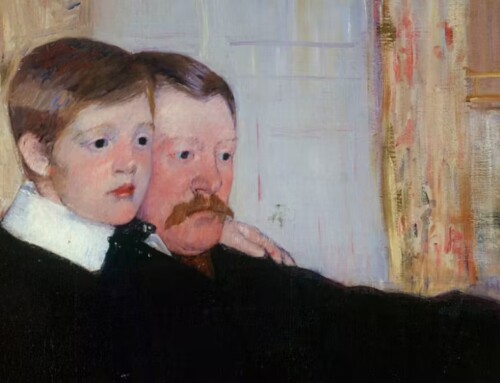
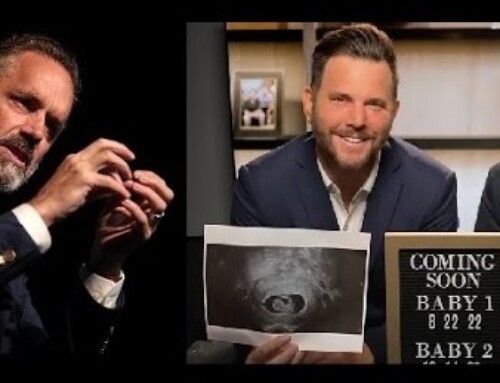
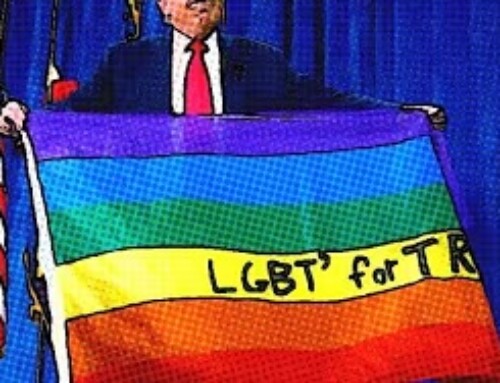
If labels stigmatize people, how about avoiding the labels “gay” or “homosexual” and using “people with same sex attraction”. “Gay” or “homosexual” imply that people with same sex attraction are some kind of different being or person–they are not! Daniel Mattson makes that point in his excellent book. Fathers Rosica and Martin are talking out of both sides of their mouths.